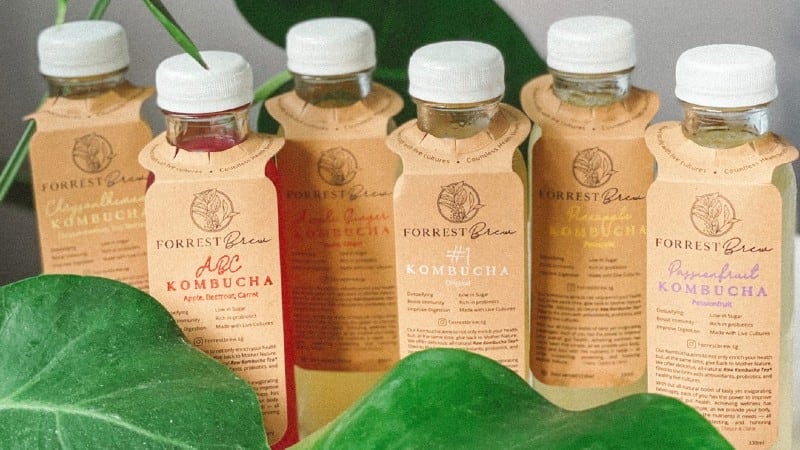According to Singapore kombucha specialist firm Forrest Brew, ‘the time is right’ for kombucha to really make a name for itself in the region, where various brands have popped up but the sector stil stands on the precipice of really moving out of being a niche category.
“If you mention kombucha in places like Australia or the United States, there is no need for further explanation and it is just about what everyone’s favourite brand is – the sector is not quite as mature here in South East Asia but we are definitely seeing signs that it is significantly picking up,” Forrest Brew Co-Founder Clara Chan told FoodNavigator-Asia.
“COVID-19 in particular definitely has been a strong driving factor in this, as it has greatly boosted the health and wellness awareness and many people have made this part of their lifestyle, not to mention many consumers have been on the lookout for products with immunity-boosting properties which kombucha and its probiotic-rich content can do.
“Whilst our home base is in Singapore, we are certainly also looking at other key target markets such as Vietnam, Thailand, the Philippines and Malaysia as we have heard that there is a lot of focus and awareness amongst consumers here when it comes to health and wellness.
“So the conditions are ripe for kombucha growth here in South East Asia on the consumer end, and with it still being quite a niche product and awareness not having reached full capacity, this means there is so much untapped potential in this market.”
The firm also believes that the use of fresh fruits and vegetables and bringing an element of localisation into its products is key to attracting and maintaining a stable consumer base, as well as providing enough choices in flavours to appeal to various tastebuds.
“Kombucha by itself can be pretty hard on the tastebuds if one is not used to it, so we have created some interesting and localised flavours to appeal to local consumers,” Chan said.
“One of these is Chrysanthemum and Goji Berry, which has a much lighter taste than traditional kombucha, so this and the local familiarity of the ingredients makes kombucha as a whole much more acceptable even to the uninitiated.
“There’s also our ABC – Apple, Beetroot, Carrot – kombucha, which is also inspired by a very familiar local fruit juice favourite and is a gorgeous natural pink colour due to the beetroot.
“These ingredients are also very traditionally associated with health and wellness, so can convey that extra element of health in addition to the immunity and gut benefits that kombucha itself can provide.”
Forrest Brew has seven flavours in total, the others being Apple & Ginger, Pineapple, Passionfruit, Original and Mint Lime Nojito. It will be showcasing the Chrysanthemum & Goji Berry and Mint Lime Nojito flavours at the upcoming Specialty and Fine Foods Asia (SFFA) show.
“Being fresh and natural is very much what we are known for, so we only use fresh fruits and vegetables that consumers know, see and can relate to in their daily lives,” Chan added.
“This is important to appeal to their tastebuds and ensure acceptance – and we already known that some foreign fruits, say an Ecuadorian passionfruit, could be really sweet when taken like that but not that suitable to be fermented with kombucha, [so ensuring compatibility] definitely takes precedence over being plain exotic.”
Challenges faced
That said, being all-fresh and all-natural comes with its own set of challenges, amongst these being the rising cost of ingredients everywhere.
“Inflation in general is causing price hikes everywhere, and this is the same for fresh fruits and vegetables. We still want to ensure giving our consumers the best possible quality, but definitely we are seeing costs go up as a result,” she said.
“And it’s not just about the ingredients but also packaging, as we have a very strong focus on being sustainable so use good-quality reusable glass bottles with a cap that has a rubber lining to keep in the carbonation and a tamper seal.”
The firm is determined to maintain its quality, as this is what has earned it a steady stream of online consumers that purchase weekly or monthly packages, and it is also now working to scale up to bring its product to more retail outlets and platforms as well as to foodservice locations.
“Many of our consumers started off with just one-time purchases or buying one-week’s worth of different kombucha flavours so they could try it out – but when the quality is good, they will return, and we have already seen many local consumers convert from weekly to monthly subscriptions which is further evidence that kombucha appreciation and incorporation into local lifestyles is on the rise,” said Chan.


